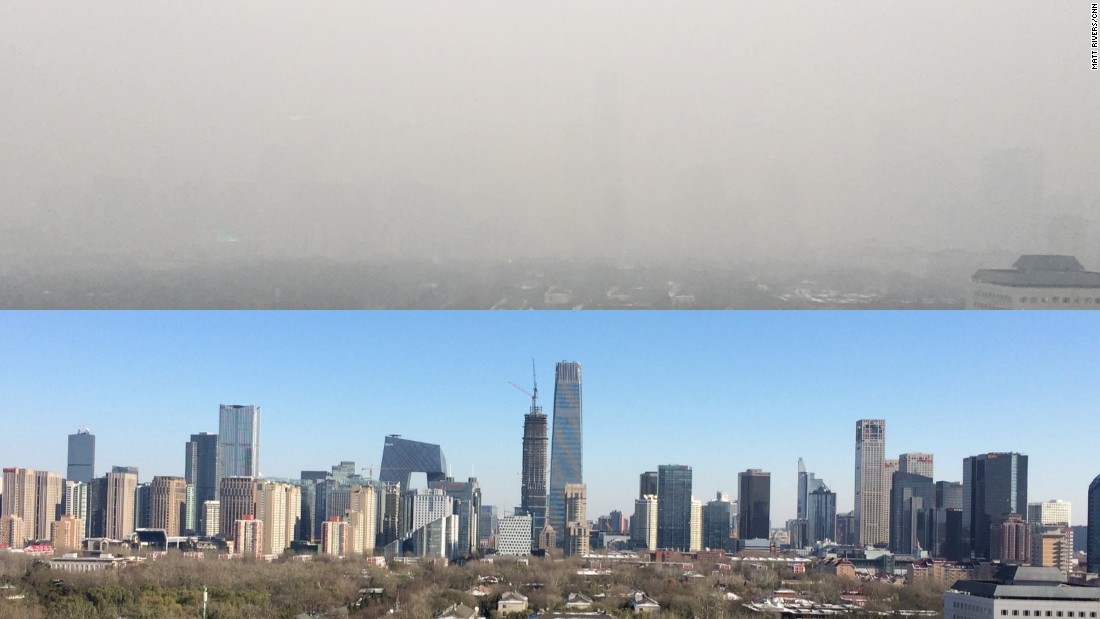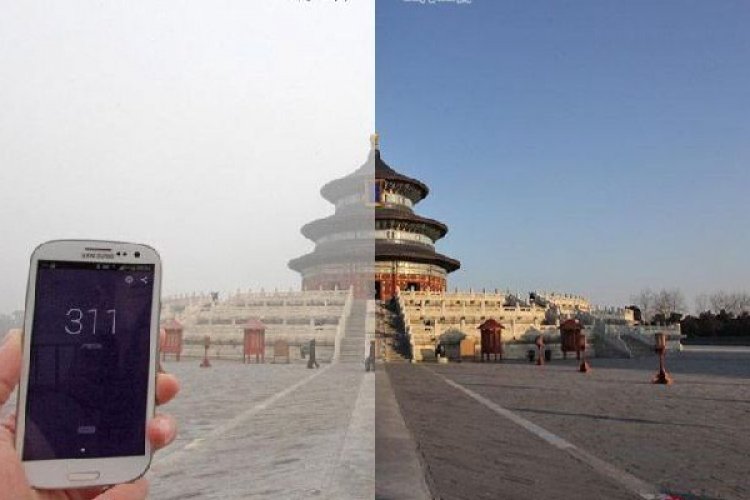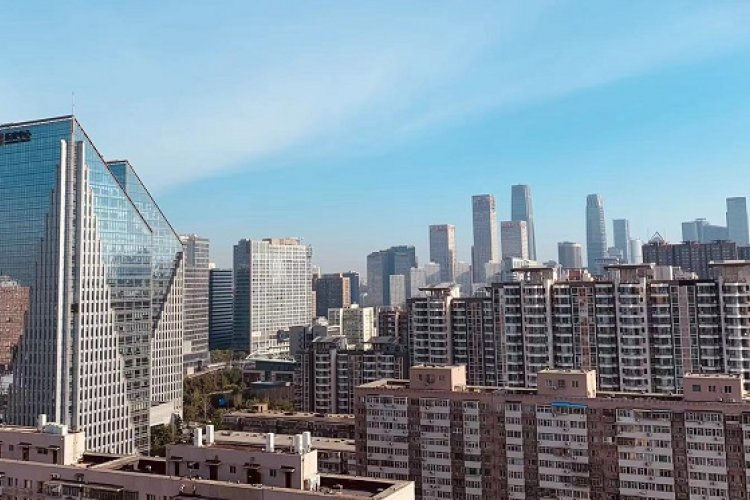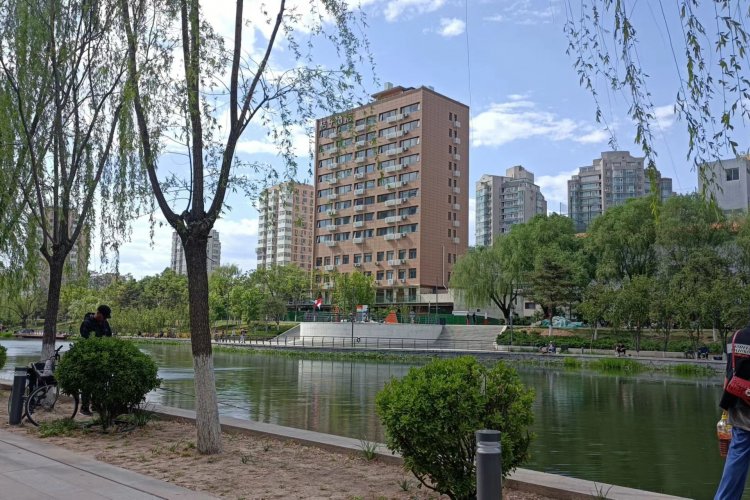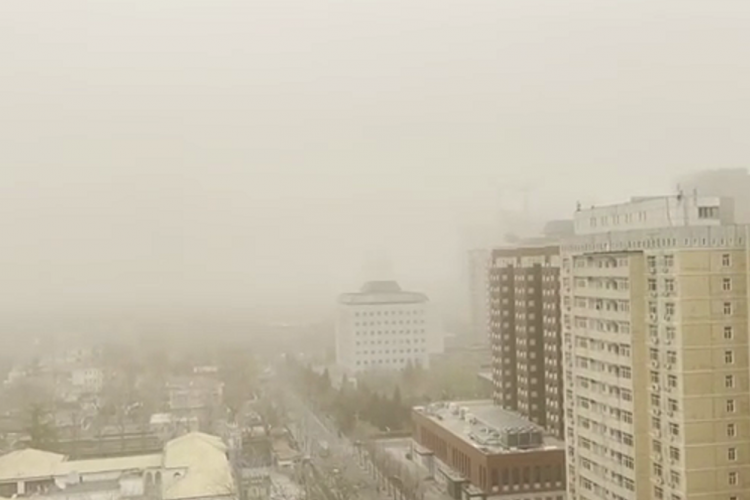Beicology: Smog is Ruining Beijing's International Image
Beijing's hazy horizons have not only become an obsession for those dwelling in the Chinese capital, but also for onlookers from abroad who have trouble seeing the city as anything more than an air quality quagmire.
A recent article in the Global Times shows the results of a poll about the biggest elements affecting China’s international image in 2016. While corruption loomed largest, at 48.4 percent, pollution billowed close behind at 42.9 percent.
But many former Beijing dwellers find themselves regaling their new neighbors about their former home's horrendous air quality more than anything else.
Indeed, many of them argue that the number one contributor to China's bad image abroad is nothing about fake products, cheap shoddy goods, corruption or even boorish nuveau riche tourists – it's the fact that its gained a reputation as being one of the most polluted places on earth.
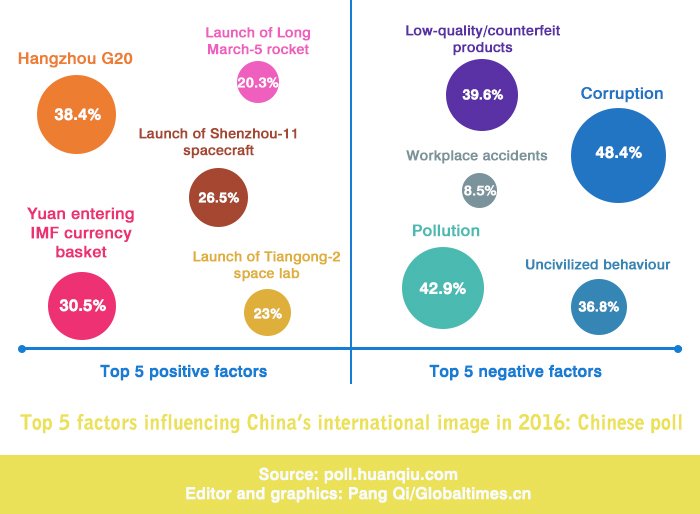
Eric Abrahamsen – a scholar and founder of Paper Republic who left Beijing last year after living here since 2001 – says now that he's home, his fellow Americans incessantly ask him about the smog in China's capital.
"It's usually one of the first things that people ask: 'Is the pollution really that bad?'", he says. "And yes, I think for most people they are thinking more of the pollution than things like corruption. It's easier to see and understand."
Alanna Mazzon, a Canadian that worked as an international school teacher in Beijing for a few years before moving on to Erlangen, Germany says her colleagues and friends marvel at how she managed to go to China at all, let alone live and work there for an extended period, because of the pollution. "When I bring up china they always say they would never go ... When you think of places in the world to live or travel, sadly China is not on a lot of people's lists, and I think pollution is a big reason for that. After all, who wants to spend their holidays or vacations in dirty air? Especially when most of the things to see and do are outside."
Jason Wilson, Mazzon's friend and former colleague in Beijing who now works as a sports reporter in Toronto, agrees with her, adding: "Pollution always comes up in conversation whenever I say I lived in Beijing. It's not always the first thing ... I honestly try to avoid talking about it first as I don't particularly like the characterization of pollution being central to Beijing's identity, despite it being a pretty severe problem."
But Wilson can't deny that "pollution has absolutely damaged its reputation abroad. Hell, fake goods may actually help it. People love going to China and bragging about getting a "Rolex" from a market, you know?" Other issues ranked in the Global Times poll, such as corruption, seem like less than an afterthought when friends and family now ask Wilson about what life was like in Beijing. He says: "There is enough perceived and real corruption at home that the same isn't going to really be surprising abroad. Massive amounts of air pollution, though, is tangible and while I got used to it or didn't see it as bad as some talk – some people believe it's constant – it is still a serious problem."
And those sentiments aren't exclusive to former Beijing expats that have moved on – natives of the capital that now live abroad also frequently find themselves mired in PM2.5 discussions. "Beijing's air quality has become some sort of ice breaker between me and other people when I introduce myself that I'm from there," says Patrick Li, a former writer for the Beijinger and native of the capital that now studies at Emory University School of Law in Atlanta, Georgia.
And that fixation on Beijing's smog has seeped outside of social situations and into Li's academic life – he says two of his professors both mentioned China's air pollution during recent lectures, one citing it in a lesson about public nuisance, and the other discussing it while detailing the EPA (environmental protection act) to the class. Li says both instances surprised him because "These classes are American law school courses which were designed specifically for American students – which means the professors mentioned Beijing not because the course had something to do with international law or was designed for international students – they mentioned Beijing because the issue was world news and people in the US knew about it."
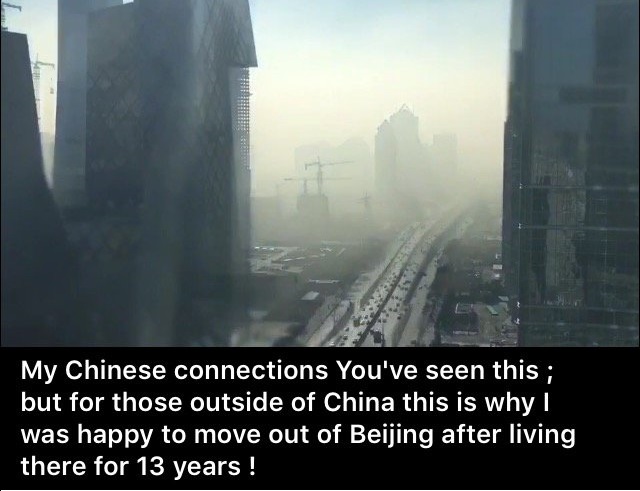
Such smoggy quandaries not only linger for former Beijingers residing in other countries, but also those that simply moved to other Chinese cities in search of healthier air. One such transplant, Vincent Rondia, was one of the many netizens posting a recent viral time lapse video of smog swallowing up Beijing's downtown core. After posting the clip on his WeChat moments, he commented: "My Chinese connections, you've seen this; but for those outside of China, this is why I was happy to move out of Beijing after living there for 13 years!"
Rondia, who now calls Shanghai home, tells the Beijinger: "I felt sad leaving, but really I trade Beijing's madness for Shanghai's mere (average) 180 pollution index any day at this point."
Despite how bleak and depressing the smog, and the data surrounding it, may appear, those toxic plumes don’t spell doom and gloom for all China watchers. Oliver Tickell, a British journalist that has written about environmental issues for The Guardian and is now the editor at The Ecologist, admits that “pollution in Beijing and other Chinese cities has reached very serious levels and it's not surprising that this is perceived as a big negative.” However, he’s also quick to point out that “what surprises me in this analysis is that China's response to the pollution crisis, caused by burning fossil fuels, does not score among the positives.”
He cites China becoming the world leader in manufacturing solar panels, along with its deployment of other renewable power generation technology like wind turbines, at a quicker rate than any other country, as boding well for the future.
RELATED: You Just Lived Through the Worst Week of Bad Beijing Air in Recent Memory
Tickell goes on to say that China “exports its renewable technologies all over the world at ever more competitive prices. It’s also becoming a global leader on climate change policy,” which he sees as an especially vital development in 2017. “This role will be vital in galvanizing global action on climate in the face of a fanatically pro-fossil fuel Trump presidency in the US. Credit to China where it is due!”
If what Tickell says is true, then maybe China will quickly become known as a green energy leader as opposed to a locale with some of the world's filthiest air. Hopefully that'll offer some solace to those of us who decided to remain in Beijing, and slog our way through its smoggy days.
More stories by this author here.
Email: kylemullin@truerun.com
Twitter: @MulKyle
WeChat: 13263495040
Photos: CNN Global Times, Vincent Rondia

